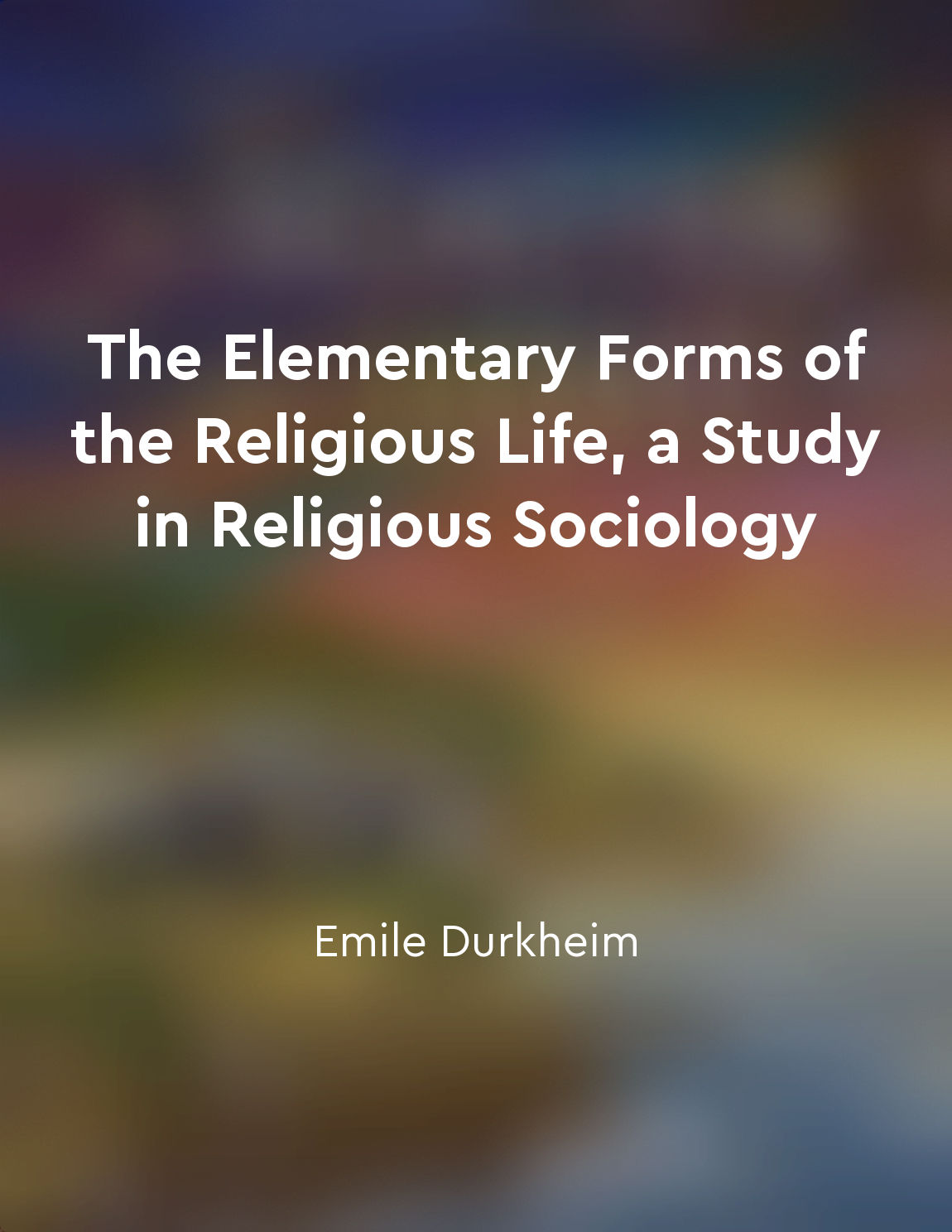Religious beliefs are expressions of collective consciousness from "summary" of The Elementary Forms of the Religious Life, a Study in Religious Sociology by Emile Durkheim
Religious beliefs are not individual creations, but rather products of the collective consciousness shared by members of a society. According to Durkheim, religious beliefs serve as a reflection of the collective values, norms, and ideals that bind individuals together within a social group. These beliefs are not arbitrary or personal, but are shaped by the collective experiences and perspectives of a community. In essence, religious beliefs are a manifestation of the shared consciousness that exists within a society. This collective consciousness is what gives rise to the rituals, symbols, and practices that form the basis of religious life. Through these shared beliefs and practices, individuals are able to connect with one another and reaffirm their common identity as members of a particular socia...Similar Posts
Voluntary group participation is essential for social capital
The idea that voluntary group participation is crucial for social capital is not a new one. In fact, it has been a central them...

The sacred is emblematic of societal ideals
Durkheim posits that the sacred serves as a representation of society's collective ideals and values. This concept is integral ...

Relationships and connections with others are essential to happiness
In our quest for happiness, we often overlook the importance of our relationships and connections with others. We tend to prior...

Religious representations are sacred and set apart from the profane
The distinction between the sacred and the profane is a fundamental concept in religious sociology. According to Durkheim, reli...

Society shapes religious practices
The relationship between society and religious practices is a fundamental aspect of human life. Society provides the framework ...
